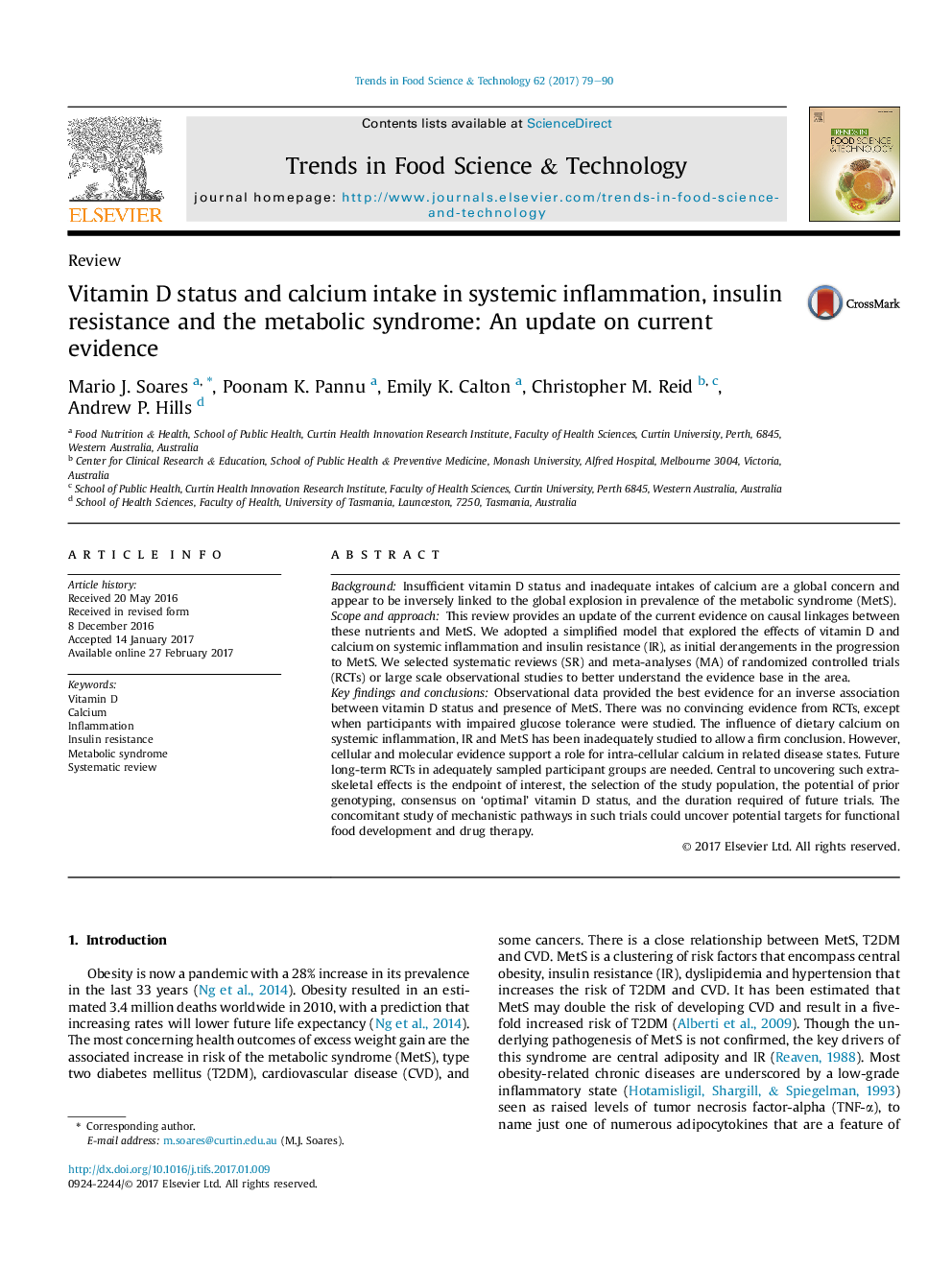| Article ID | Journal | Published Year | Pages | File Type |
|---|---|---|---|---|
| 5523647 | Trends in Food Science & Technology | 2017 | 12 Pages |
â¢Systematic reviews of RCTs and observational studies were selected.â¢No support for vitamin D in systemic inflammation or insulin resistance from RCTs.â¢Vitamin D status and metabolic syndrome were inversely related in observational studies.â¢Data on calcium intake was meagre, but mechanistic pathways are strong.â¢Potential issues to address are discussed.
BackgroundInsufficient vitamin D status and inadequate intakes of calcium are a global concern and appear to be inversely linked to the global explosion in prevalence of the metabolic syndrome (MetS).Scope and approachThis review provides an update of the current evidence on causal linkages between these nutrients and MetS. We adopted a simplified model that explored the effects of vitamin D and calcium on systemic inflammation and insulin resistance (IR), as initial derangements in the progression to MetS. We selected systematic reviews (SR) and meta-analyses (MA) of randomized controlled trials (RCTs) or large scale observational studies to better understand the evidence base in the area.Key findings and conclusionsObservational data provided the best evidence for an inverse association between vitamin D status and presence of MetS. There was no convincing evidence from RCTs, except when participants with impaired glucose tolerance were studied. The influence of dietary calcium on systemic inflammation, IR and MetS has been inadequately studied to allow a firm conclusion. However, cellular and molecular evidence support a role for intra-cellular calcium in related disease states. Future long-term RCTs in adequately sampled participant groups are needed. Central to uncovering such extra-skeletal effects is the endpoint of interest, the selection of the study population, the potential of prior genotyping, consensus on 'optimal' vitamin D status, and the duration required of future trials. The concomitant study of mechanistic pathways in such trials could uncover potential targets for functional food development and drug therapy.
